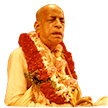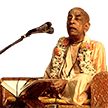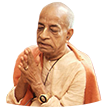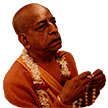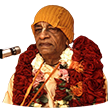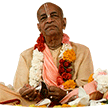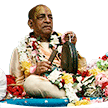Satyaloka - an essential subject: Difference between revisions
Nayanranjani (talk | contribs) (Created page with "Category:Essential Subjects <!----------------------- edit below this line -----------------------> <!------------------------ begin introduction text below ------------...") |
(Vanibot #0041: Moves Choose Another box to the end) |
||
| Line 2: | Line 2: | ||
<!----------------------- edit below this line -----------------------> | <!----------------------- edit below this line -----------------------> | ||
<!------------------------ begin introduction text below ------------------------> | <!------------------------ begin introduction text below ------------------------> | ||
The universe is divided into fourteen planetary systems. Seven planetary systems, called Bhūr, Bhuvar, Svar, Mahar, Janas, Tapas and Satya, are upward planetary systems, one above the other. There are also seven planetary systems downward, known as Atala, Vitala, Sutala, Talātala, Mahātala, Rasātala and Pātāla, gradually, one below the other. Satyaloka is situated next to Brahmaloka, and its beings are considered to be the epitomes of virtues. However, although the thought of reaching Satyaloka may be rather appealing, the Vaikuntha planets are much higher above Satyaloka, and the ultimate destination that one could crave for is Goloka Vrindavan, the eternal abode of Lord Sri Krishna, reaching where, one would never return to this material creation again. | |||
Srila Prabhupada's books, lectures, conversations and letters offer a comprehensive presentation of this essential subject as seen in the Vaniquotes '''[[Vaniquotes:Category:Satyaloka|Satyaloka]]''' category. An introduction from his books is given below in the following | Srila Prabhupada's books, lectures, conversations and letters offer a comprehensive presentation of this essential subject as seen in the Vaniquotes '''[[Vaniquotes:Category:Satyaloka|Satyaloka]]''' category. An introduction from his books is given below in the following 8 quotes. | ||
<!-------- end introduction text and don't touch next three lines ---------> | <!-------- end introduction text and don't touch next three lines ---------> | ||
== Quotes from Srila Prabhupada's books == | == Quotes from Srila Prabhupada's books == | ||
<!----------------- edit quote boxes below this line -----------------> | <!----------------- edit quote boxes below this line -----------------> | ||
{{VaniQuotebox| | {{VaniQuotebox|Within the stem of the lotus there are fourteen divisions of planetary systems, and the earthly planets are situated in the middle. Upwards there are other, better planetary systems, and the topmost system is called Brahmaloka or Satyaloka|Within the stem of the lotus there are fourteen divisions of planetary systems, and the earthly planets are situated in the middle. Upwards there are other, better planetary systems, and the topmost system is called Brahmaloka or Satyaloka. Downwards from the earthly planetary system there are seven lower planetary systems inhabited by the asuras and similar other materialistic living beings. '''(Śrīmad-Bhāgavatam 1.3.2)'''}} | ||
{{VaniQuotebox| | {{VaniQuotebox|In Satyaloka is no pain of any kind, and therefore there are no anxieties, save that sometimes, due to consciousness, there is a feeling of compassion for those unaware of the process of devotional service, who are subjected to unsurpassable miseries|In that planet of Satyaloka, there is neither bereavement, nor old age nor death. There is no pain of any kind, and therefore there are no anxieties, save that sometimes, due to consciousness, there is a feeling of compassion for those unaware of the process of devotional service, who are subjected to unsurpassable miseries in the material world. '''(Śrīmad-Bhāgavatam 2.2.27)'''}} | ||
{{VaniQuotebox| | {{VaniQuotebox|The Vedic literatures describe that in Satyaloka there is no birth, death, old age or disease. In other words, since Satyaloka is situated next to Brahmaloka, or the Brahman effulgence, it is almost as good as Vaikunthaloka|The Vedic literatures describe that in Satyaloka there is no birth, death, old age or disease. In other words, since Satyaloka is situated next to Brahmaloka, or the Brahman effulgence, it is almost as good as Vaikuṇṭhaloka. Lord Brahmā's abode is practically indescribable from our present status. '''(Śrīmad-Bhāgavatam 5.1.21)'''}} | ||
{{VaniQuotebox| | {{VaniQuotebox|Within the material worlds they (the transcendentalists) move in the planetary systems of the Mahar-, Janas-, Tapas- and Satya-loka, and beyond the material worlds they can move in the Vaikunthas as unrestricted spacemen|The transcendentalists who have nothing to do with the gross material body can move anywhere within or beyond the material worlds. Within the material worlds they move in the planetary systems of the Mahar-, Janas-, Tapas- and Satya-loka, and beyond the material worlds they can move in the Vaikuṇṭhas as unrestricted spacemen. Nārada Muni is one of the examples of such spacemen, and Durvāsā Muni is one of such mystics. '''(Śrīmad-Bhāgavatam 2.2.23)'''}} | ||
{{VaniQuotebox| | {{VaniQuotebox|The transcendental position cannot be attained by wandering up and down from Brahmaloka and Satyaloka to Patalaloka. If one is actually intelligent and learned, he should endeavor for that rare transcendental position|The transcendental position cannot be attained by wandering up and down from Brahmaloka and Satyaloka to Pātālaloka. If one is actually intelligent and learned, he should endeavor for that rare transcendental position. By the force of time one attains whatever material happiness is available within the fourteen worlds, just as one attains distress in due course of time. But since spiritual consciousness is not attained in this way, one should try for it. '''(Caitanya-caritāmṛta, Madhya-līlā 24.169)'''}} | ||
{{VaniQuotebox| | {{VaniQuotebox|Higher planets, such as Maharloka, Tapoloka, Satyaloka and Brahmaloka, do not dissolve in the devastating water. This is because of the causeless devotional service rendered unto the Lord by their inhabitants|Higher planets, such as Maharloka, Tapoloka, Satyaloka and Brahmaloka, do not dissolve in the devastating water. This is because of the causeless devotional service rendered unto the Lord by their inhabitants, whose existence continues up to the end of dvi-parārdha time, when they are generally liberated from the chain of birth and death in the material world. '''(Śrīmad-Bhāgavatam 3.10.9)'''}} | ||
{{VaniQuotebox| | {{VaniQuotebox|In Satyaloka the inhabitants are fully cognizant of Vedic wisdom, and thus the mystic cloud of material energy is cleared. Therefore they are known as the Vedas personified|The human beings on earth are situated at the beginning of the intermediate worlds, but living beings like Brahmā and his contemporaries live in the upper worlds, of which the topmost is Satyaloka. In Satyaloka the inhabitants are fully cognizant of Vedic wisdom, and thus the mystic cloud of material energy is cleared. Therefore they are known as the Vedas personified. Such persons, being fully aware of knowledge both mundane and transcendental, have no interest in either the mundane or transcendental worlds. '''(Śrīmad-Bhāgavatam 1.19.23)'''}} | ||
{{VaniQuotebox| | {{VaniQuotebox|One who attains the place (Satyaloka or Brahmaloka) by dint of devotional service can penetrate into the different coverings of the universe and thus ultimately disclose his spiritual identity in the absolute atmosphere of supreme existence|Anyone who can reach Brahmaloka, or Satyaloka, by dint of spiritual perfection and practice is qualified to attain three different types of perfection. One who has attained a specific planet by dint of pious activities attains places in terms of his comparative pious activities. One who has attained the place by dint of virāṭ or Hiraṇyagarbha worship is liberated along with the liberation of Brahmā. But one who attains the place by dint of devotional service is specifically mentioned here, in relation to how he can penetrate into the different coverings of the universe and thus ultimately disclose his spiritual identity in the absolute atmosphere of supreme existence. '''(Śrīmad-Bhāgavatam 2.2.28)'''}} | ||
<!----------------- edit quote boxes above this line -----------------> | <!----------------- edit quote boxes above this line -----------------> | ||
| Line 30: | Line 30: | ||
'''Satyaloka - [[Vaniquotes:Category:Satyaloka|explore more within this category]]'''. | '''Satyaloka - [[Vaniquotes:Category:Satyaloka|explore more within this category]]'''. | ||
{{EsentialSubjectTotal}} | {{EsentialSubjectTotal}} | ||
<div style="float:left;"> | |||
{{EssentialSubjectnav}} | |||
</div> | |||
__NOTOC__ | __NOTOC__ | ||
__NOEDITSECTION__ | __NOEDITSECTION__ | ||
Latest revision as of 17:30, 22 November 2020
The universe is divided into fourteen planetary systems. Seven planetary systems, called Bhūr, Bhuvar, Svar, Mahar, Janas, Tapas and Satya, are upward planetary systems, one above the other. There are also seven planetary systems downward, known as Atala, Vitala, Sutala, Talātala, Mahātala, Rasātala and Pātāla, gradually, one below the other. Satyaloka is situated next to Brahmaloka, and its beings are considered to be the epitomes of virtues. However, although the thought of reaching Satyaloka may be rather appealing, the Vaikuntha planets are much higher above Satyaloka, and the ultimate destination that one could crave for is Goloka Vrindavan, the eternal abode of Lord Sri Krishna, reaching where, one would never return to this material creation again.
Srila Prabhupada's books, lectures, conversations and letters offer a comprehensive presentation of this essential subject as seen in the Vaniquotes Satyaloka category. An introduction from his books is given below in the following 8 quotes.
Quotes from Srila Prabhupada's books
Satyaloka - explore more within this category.
Vanipedia has now over 903 introductory articles compiled from Srila Prabhupada's books under the series titled Essential Subjects. All these articles can be seen in the Table of Content on the right side of this article and also here in this Umbrella Category. Browse through them to relish the breadth and depth of Srila Prabhupada's teachings - There is a subject for everyone.
